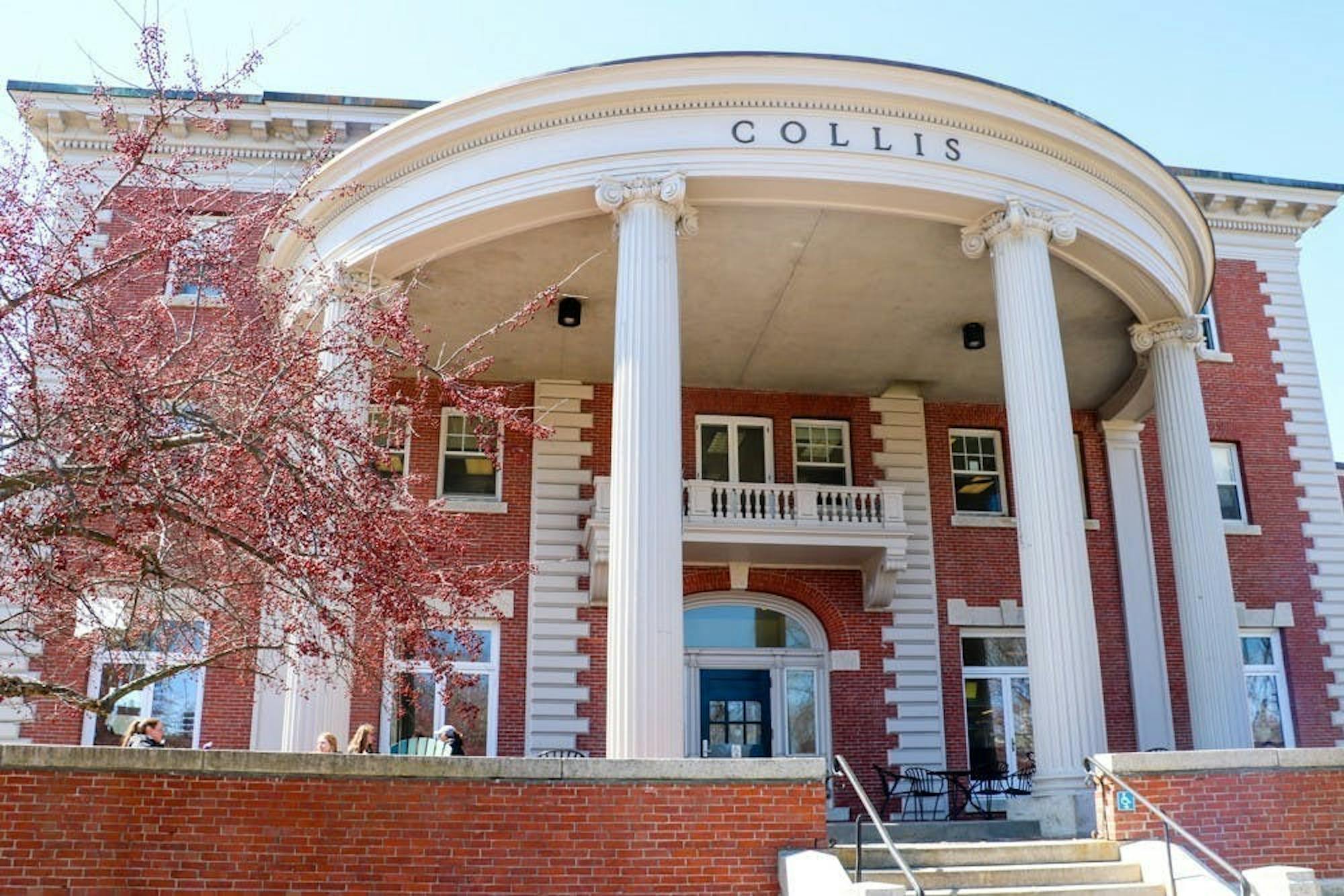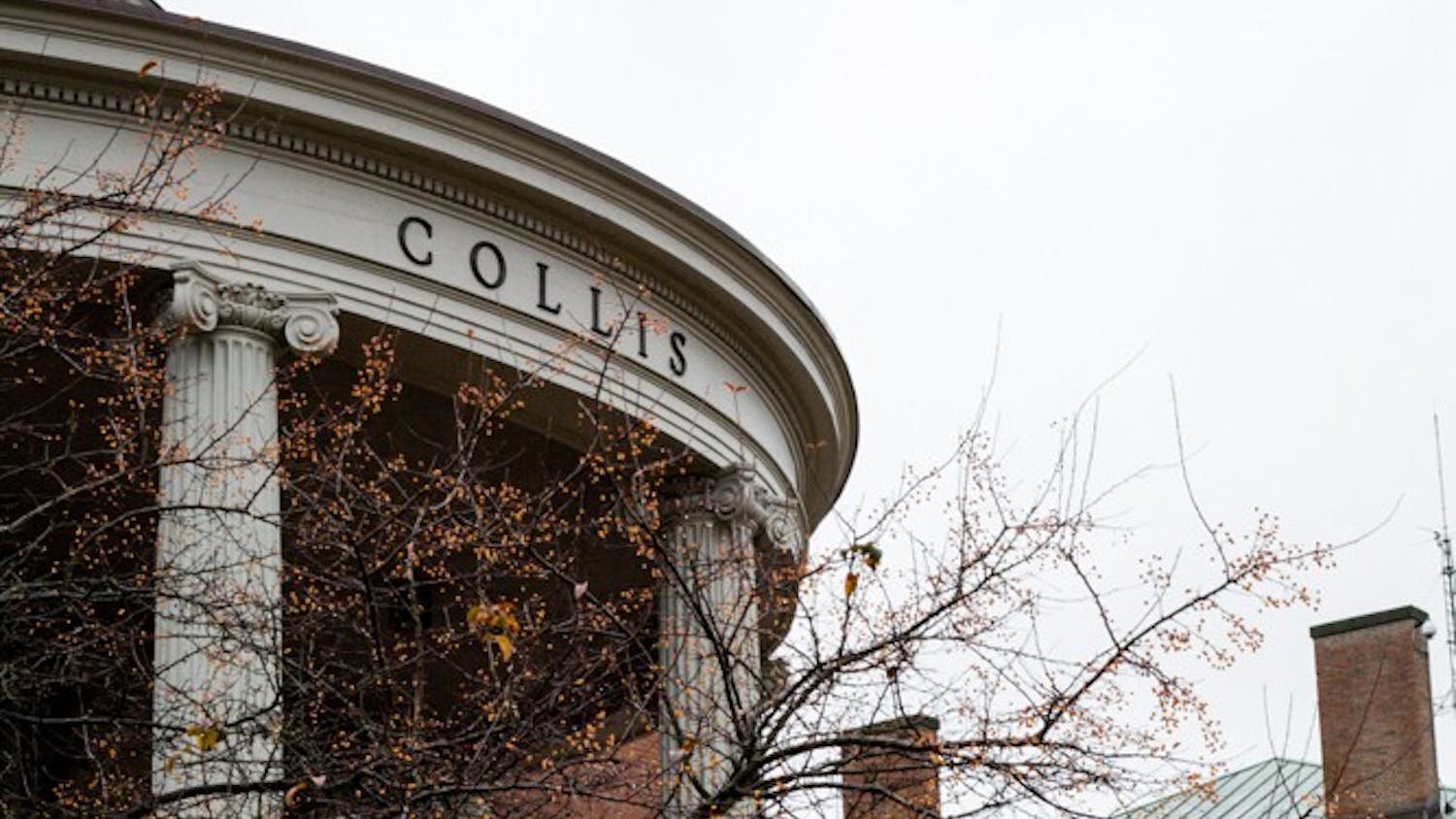In their last term of leadership, Student Assembly president Cait McGovern ’21 and vice president Jonathan Briffault ’21 have publicized the SA budget and announced the creation of a Student Liaison Committee to the Board of Trustees.
In an interview during the spring SA campaign period, Briffault said that SA’s release of the budget on Instagram came in response to “blatantly and obviously incorrect” information being circulated on social media. After being made aware of the misinformation, Briffault said he and McGovern decided to post to the SA Instagram to clarify the budget to the student body before the election.
“We felt that it was important in order for the election to be run in a fair and impartial way for those numbers to be available,” Briffault said.
According to McGovern and Briffault, in a normal year, SA would draft a budget proposal months prior to the start of a new academic year, and after receiving a percentage of the student activities fee — determined by the Undergraduate Finance Committee — would then decide how best to allocate a yearly budget of around $60,000.
However, Briffault noted that this year has been an “outlier” because the College allocated funding to SA on a termly basis rather than the usual yearly basis. This year, the UFC allocated 4.5% of the total student activities fee — $10,980 per term — to SA.
McGovern explained that after UFC dispensed SA’s termly budget one week before the start of spring term, SA had a limited time to devise a plan for the funds. According to McGovern, because SA did not ultimately use all of its allocated funds for the fall and winter quarters, the leftover money rolled over into the spring term, meaning that the total funds allocated to SA over the course of the year totalled $19,785.
Major spending items, according to the budget, have included initiatives to reduce food insecurity on campus — such as the “Boxed” food pantry and the Coop grocery program — as well as the Dartmouth Coach vouchers program. This spring, McGovern and Briffault anticipate that SA will use the entirety of its 21S budget to cover the costs of a pilot student mental health application and a menstrual product project, programs that SA plans to launch this term.
Additional SA budget items this spring include $3,500 in payments to EPAC for the fall and spring campaign seasons and gift cards sent to students who filled out an SA-sponsored survey on economic inequality.
Through Boxed, an initiative to reduce food insecurity on campus, SA has supplied over $3,000 of food to the Dick’s House food pantry for students in need, McGovern said. Through the Coop voucher program, SA distributed 70 $35 Coop gift cards each — worth $2,450 in total — to students staying on campus over winterim who indicated their need through a Google form.
“We spent about $6,000 this year trying to address [food insecurity] on campus because we know that there’s a huge need in our community for this work,” McGovern said.
The Dartmouth Coach voucher program, according to Briffault, “basically provides free… tickets” to Boston on the Dartmouth coach. According to the budget, SA provided 65 vouchers worth $38 each.
Vicky Escalona ’24, who received a Coach voucher in the winter term, said that although the allocation of the SA budget towards the voucher program helped to cover her transportation costs, the voucher only applied to buses going to Boston. Escalona said she believed SA should have dedicated half of the money it spent to New York coaches.
“I live in New York City, so it didn’t make sense to go to Boston and then pay the money and spend the time to go from Boston to New York,” she said. Ultimately, Escalona said her parents had to drive to Boston to pick her up so that she could spend spring break in New York.
Additionally, according to Escalona, the vouchers were for one-way tickets and did not cover the cost of the return trip to campus after spring break.
Student Liaison Committee
Modeled after the Alumni Liaison Committee and organized under the Student Experience Committee — a standing committee under the Board of Trustees — the new Student Liaison Committee seeks to bring student voices directly to the Board of Trustees through twice-yearly meetings with the Board, Briffault said.
McGovern and Briffault met in April with Trustee and Student Experience Committee chair S. Caroline Kerr ’05 and the president’s liaison to the Board of Trustees to finalize the details of the Student Liaison Committee before its official kick-off meeting this upcoming fall, Briffault said.
Kerr said she has been working with McGovern, Briffault and the student government leaders from the graduate schools “over the course of the academic year” to prepare for the launch of the Student Liaison Committee. The planning process involved clarifying the committee’s objectives, solidifying the committee’s membership and crafting a regular meeting schedule, Kerr added.
According to Kerr, the Student Liaison Committee will consist of nine members: the president and vice presidents of Student Assembly as well as representatives from the graduate student council, the Tuck School of Business student board and the Geisel Medical School student government. The committee is still deliberating on how to best include a representative from the Dartmouth Institute for Health Policy and Clinical Practice, Kerr said.
Similar to the Alumni Liaison Committee, the Student Liaison Committee will meet twice a year with the Student Experience Committee — in the fall and spring, according to Kerr.
Kerr said the fall meeting will be a chance to hear the “priorities that students are really concerned about,” while the spring meeting will offer the opportunity to discuss “student sentiment that the Student Liaison Committee has collected over the course of the year.”
Following the meetings in the fall and spring, the Student Experience Committee will report back to the Board of Trustees and act as a representative for student perspectives.
According to Kerr, while undergraduate and graduate students have previously expressed interest in developing greater communication with the Board, it was the “work of students” as well as McGovern and Briffault’s leadership that influenced the creation of the committee.
“I think Cait and Jonathan were really active on the undergraduate side, and were very clear coming in that [communication with the Board] was a priority that they really wanted to work on,” Kerr said.
Both McGovern and Briffault expressed their optimism for future collaboration and greater student engagement with the Board.
“We're really hopeful that it's gonna be an opportunity for cross-cutting student needs to come to the Board, and also to prove to the Board how invaluable it is to have student involvement,” Briffault said.
Sophie Williams ’23 called the new committee “a step in the right direction,” adding that she hopes the liaison committee will collaborate with the board to improve mental wellness on campus by addressing “external pressures” and expanding the non-recording option.
Ultimately, though, Williams said she hopes the liaison committee will work towards having a student as a voting member of the Board, citing Cornell University’s Board of Trustees — which has 3 student members — as an example.
“It could be a gradual process, but I don’t have as much faith in that. I think that [the Board] will give small concessions as an alternative,” Williams noted.
Paul Hager ’22, who was recently elected as a write-in candidate for School House senator, said he would like the College to consult with students on major decisions.
“It seems like their primary stakeholders really should be undergraduate students, that the extent to which they consider alumni input or the input of the community is really about shaping the undergraduate experience,” said Hager. “So it feels disappointing to me that, you know, we're very rarely asked for our opinion.”





